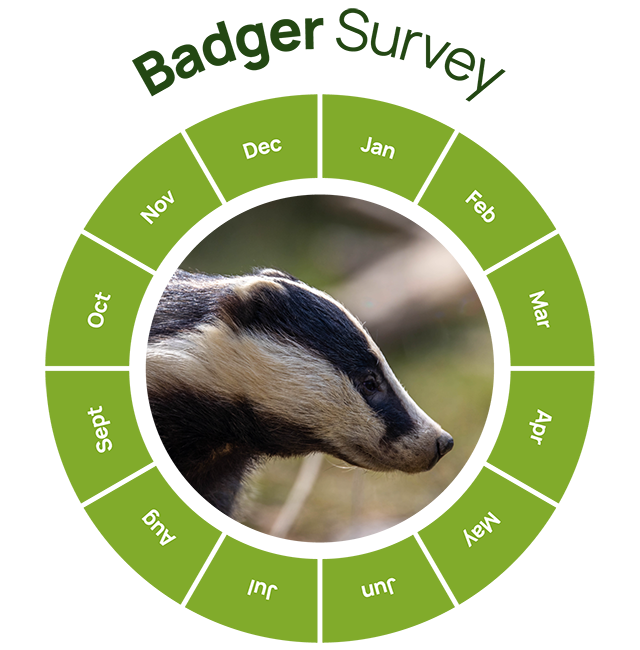Badger Survey
Badger Survey from licensed ecologists.
Why and when do you need a badger survey?
Badgers are a protected species due to the historically high levels of persecution they face and for animal welfare reasons. Badgers are protected in the UK under the Protection of Badgers Act 1992, which means disturbing the animals in any way, or destroying setts, is against the law. A badger sett is defined as ‘any structure or place which displays signs indicating a badger’s current use’.
A badger survey may be required to support a planning application or when a badger sett is discovered during development works or vegetation clearance. If there is potential for badgers to be present on site, a badger survey and report can help your project go ahead as planned and will be needed to apply for planning permission if there is any chance badger habitats will be affected by a proposed development.
What does a badger survey entail:
The presence of suitable badger habitat and signs of badger activity are often established via ecological scoping or a preliminary ecological appraisal. The data found can establish whether a full badger survey is required. Most badger surveys consist of two elements: a walkover survey to search for evidence of badgers on site, and a survey to monitor any setts for signs of activity using camera traps.
A badger survey will:
- Locate and identify different types of badger sett(s) on site;
- Establish the importance and use of each badger sett; and
- Provide information on the mitigation required, such as avoidance measures, creating new badger habitats or building a new sett.
A badger survey provides all the necessary information to inform the local planning authority on the status of badgers at the site in order to understand the likely effects of the development and the mitigation strategy required. Planning officers rely on the findings of the survey to determine whether to approve planning permission, as well as to support your licence application to Natural England (if required). For larger, more complex developments, a more extensive survey using bait marking may be required, in order to establish the full extent of the animals' territories.
Badger Survey Timing
Badger surveys can be carried out all year round, although winter is the optimum period to record setts due to the reduction in surrounding vegetation. Should there be delays in the construction project or changes to proposed plans, an update badger survey may be required. This is because whilst main setts can remain in use for decades, levels of activity at other setts can change. We will be able to advise you about the period in which survey reports remain valid and when a re-survey is required.




